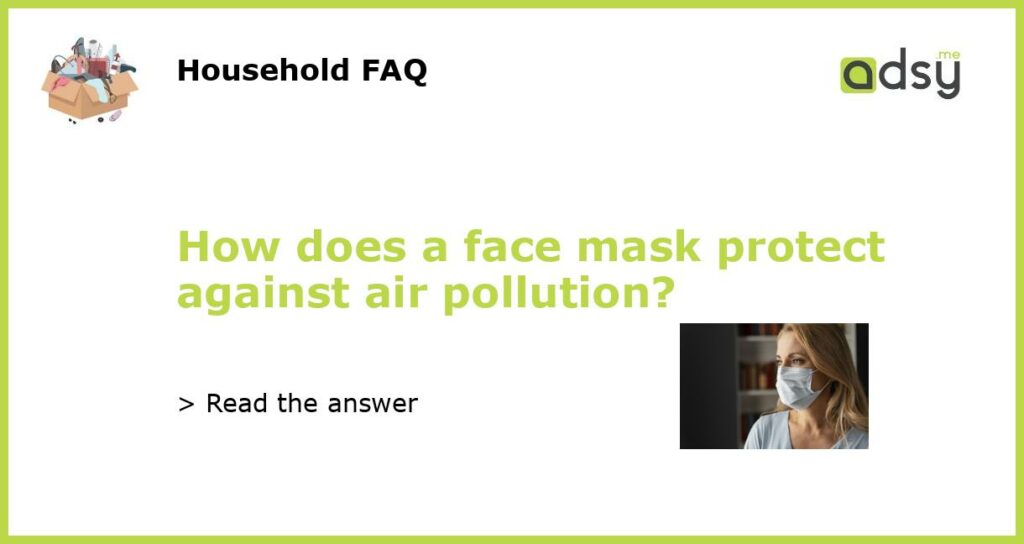Understanding the Impact of Air Pollution
Air pollution is a serious threat to human health and can cause a range of health problems such as respiratory illnesses, heart disease, stroke, and even early death. The main sources of air pollution are traffic, factory emissions, and the burning of fossil fuels. In urban environments, air pollution can reach hazardous levels, and the use of protective gear such as face masks has become increasingly common. But how does wearing a mask actually protect against air pollution?
How Do Face Masks Work?
Face masks provide a physical barrier between the wearer and the polluted air. The mask filters out harmful pollutants such as particulate matter, smoke, and chemicals, so that they do not enter the body through inhalation. The material used to make the mask is designed to capture tiny particles, and some masks are rated based on their filtration efficiency for particles of different sizes. Some masks also feature activated carbon filters, which can absorb and neutralize harmful gases.
Types of Masks for Air Pollution Protection
There are different types of face masks available for protection against air pollution. The most common type is the N95 respirator mask, which has been designed to filter out 95% of airborne particles. Other masks, such as those made from cloth, may also provide some level of protection, although they are not as effective at filtering out small particles. It is important to choose a mask that is certified by a reputable organization such as the National Institute for Occupational Safety and Health (NIOSH).
Maintaining and Using a Face Mask
To ensure that a face mask provides adequate protection against air pollution, it is important to maintain and use the mask correctly. This includes checking the mask for damage or wear before each use, ensuring a proper fit, and disposing of the mask after use or if it becomes wet or dirty. Masks should also be washed or replaced regularly depending on the manufacturer’s instructions. Proper use and maintenance of a face mask can help to ensure that it provides effective protection against air pollution.
The Importance of Wearing a Face Mask for Air Pollution Protection
Wearing a face mask is an important strategy for protecting against the harmful effects of air pollution, particularly in urban environments where the risk of exposure is high. By providing a physical barrier between the wearer and the polluted air, masks can help to reduce the risk of respiratory and other health problems. However, it is important to choose the right type of mask for the level of pollution and to use and maintain the mask correctly to ensure that it provides adequate protection.






